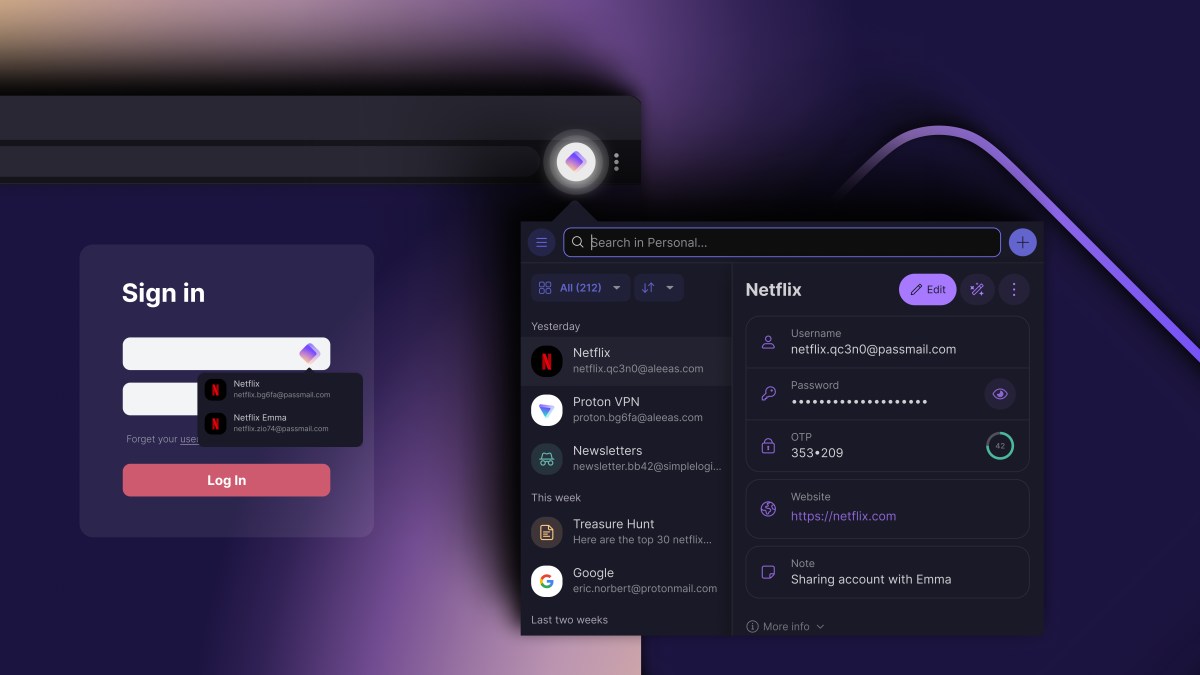The company plans to open source Proton Pass so that security experts can verify the security model. There will be security audits, security reports and a bug bounty program as well.
Credit card autofilling would be useful too. But the basic version of Proton Pass is free with support for multiple devices.
Users can also get a premium subscription, which includes unlimited email aliases instead of 10 and the two-factor authentication feature I mentioned earlier. It will soon also include the ability to create shared vaults so that users can safely share passwords with family members and friends. If you’re already a Proton subscriber, the premium features for Proton Pass are included in Proton’s Unlimited and Family plans. Otherwise, the premium version of Proton Pass will cost $2.99 to $4.99 per month based on the subscription length.
Even for me as an existing Proton VPN paying member, I'd have to pay up $4 per month for the unlimited tier to get paid access to Proton Pass. I'm paying around $1 per month currently for open source Bitwarden password manager.
Both have unlimited password capability and are cross-platform, but Bitwarden does also already have credit card filling as well as also vault sharing.
What Proton Pass includes in its paid model is the unlimited email aliases. For Bitwarden, it will only generate unlimited email aliases for an existing email address you have (with the plus addressed mail), or using your domain's catch-all email, or link to other paid email alias services. And of course with Bitwarden you can self-host a full service yourself if you wish to.
But if one was to just consider the free tier for both password managers, then Proton Pass may be an equally good choice (once it gets credit card form filling).
See
Proton launches its password manager Proton Pass#
technology #
ProtonPass #
passwordmanagers 
A couple of months after unveiling Proton Pass, Proton is officially launching its password manager to everyone.